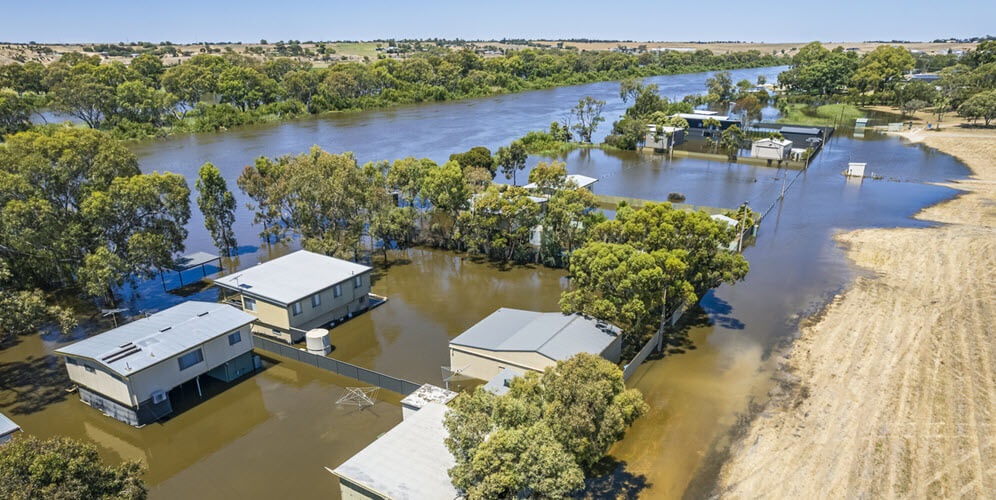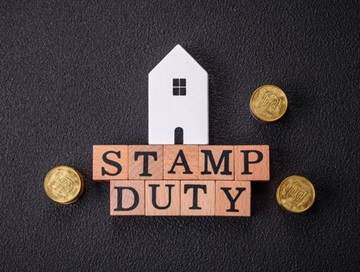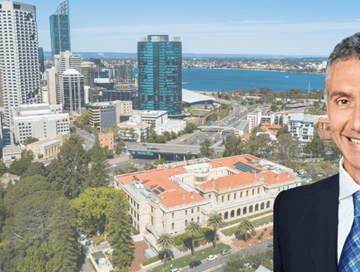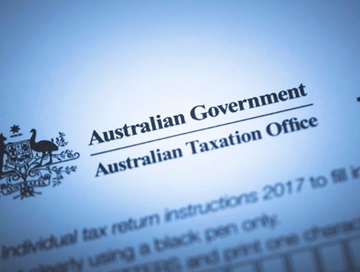What happens if the property you rent is affected by a disaster?
16 January 2023"If a disaster does strike, communicating well with your landlord or property manager and acting quickly is in everyone’s best interest. "

With the Kimberley region severely affected by flooding and a spate of bushfires breaking out around WA, the Department of Mines, Industry Regulation and Safety (DMIRS) has sent out the following advice for tenants who may be affected by a fire, flood, storm or other disaster.
What happens to your tenancy during a disaster
Tenants and landlords each have responsibilities if a cyclone, storm, fire, flood, earthquake or some other disaster affects a rental property.
Being prepared before a disaster strikes is important. The release of Building and Energy’s new guide will help to protect homes and occupants from cyclones, particularly as we come into cyclone season in Northwest Australia from November to April. We’re also coming into bushfire season. The Department of Fire and Emergency Services has a guide to help you and your landlord prepare your home for bushfire season.
Did you know: when a property is listed on reiwa.com you can use the interactive maps to check if it is in a flood or bushfire-prone area. When viewing the property just click on the map and select the environment tab.
If a disaster does strike, communicating well with your landlord or property manager and acting quickly is in everyone’s best interest.
Right of entry
The landlord or property manager can enter the property at any time if there’s an emergency or if the tenancy ends because the property is destroyed or unfit to live in. However, they need to follow the usual rules if you are still living there once the emergency is over. Otherwise, the landlord or property manager needs your agreement before they can enter.
If the house is destroyed or unfit to live in
You should contact your landlord or property manager to end the tenancy if your home is destroyed or unfit to live in. The landlord doesn’t need to give you another place to stay.
Your local government or other authority can declare your home unfit to live in if you or the landlord aren’t sure. It makes this decision based on cleanliness, access to essential services, or health and safety risks at the property.
You should get your bond back as normal at the end of the tenancy. The landlord can’t take money out of the bond to cover damage caused by a disaster.
If the house is damaged, but still fit to live in
The landlord is responsible for damage to the property caused by a disaster, but you need to tell them or the property manager about it as soon as you can.
You may not want to stay in the home if part of it has been damaged, but if the property is still liveable, the landlord doesn’t have to agree to end the tenancy.
If you want to move out and you have a fixed-term tenancy agreement, you’ll need to negotiate with the landlord to end the tenancy early. The landlord may choose to continue to charge you rent until the premises are re-let or your original agreement ends. If this happens you can seek information from the REIWA Information Service by calling 9380 8222 or emailing info@reiwa.com.au. You can also contact Consumer Protection on 1300 30 40 54 or consumer@dmirs.wa.gov.au. If you have a periodic tenancy, you only have to give 21 days’ notice to terminate the tenancy agreement.
Repairs and maintenance after a disaster
If you keep renting the property your landlord or property manager will need to arrange repairs once you tell them about the damage. This includes maintenance work like clearing away any debris. Landlords are given certain timeframes for arranging repairs:
- Within 24 hours for urgent repairs to essential services, being electricity, gas and water supply (including hot water), fridge function (if supplied with the premises), and sewerage, septic tank or other waste-water management.
- Within 48 hours for other urgent repairs which are classed as problems which can cause damage to the property or injury or undue hardship to you.
- As soon as possible for non-urgent repairs.
You can arrange minimum urgent repairs using a qualified person if either you are unable to contact the landlord or property manager, or they fail to have repairs done as soon as possible after you notify them of the problem. The landlord must pay you for the cost later.
Unlicensed and dodgy traders have been known to target disaster-affected areas. You need to make sure any person you employ to do repairs is appropriately licensed and/or trading legally.
You can serve a breach notice on the landlord if they refuse or fail to arrange non-urgent repairs. You can then take further action through the Magistrates Court if the landlord still doesn’t arrange the repair.
Don’t stop paying rent if there is a dispute about maintenance or repairs, because the landlord could end your tenancy.
Keep in mind that disasters could lead to delays in repairs and maintenance work.
Special trading laws apply when the Commonwealth or Western Australian Government has declared an emergency for the area where the property is located.
Utilities and services disconnected
Sometimes damage to the property cuts off a utility supply. Your landlord is responsible for repairing this damage so that the supply can be restored. The utility supplier should be able to tell you when they expect to restore your service.
You may be able to negotiate a rent reduction
You can ask for a rent reduction if certain parts of the property were destroyed, like a shed or a pool.
You can pursue the matter through the Magistrates Court if the landlord doesn’t agree to lower the rent.
Emergency accommodation
A range of organisations provide crisis and emergency services including accommodation, food access, legal services and counselling, and suicide prevention.
For more information
The DMIRS factsheet on major damage to rental properties for tenants has more information about rights and responsibilities during a disaster situation.




.tmb-rcarousel.png?sfvrsn=3619a769_1)

.tmb-rcarousel.png?sfvrsn=8808266b_1)


